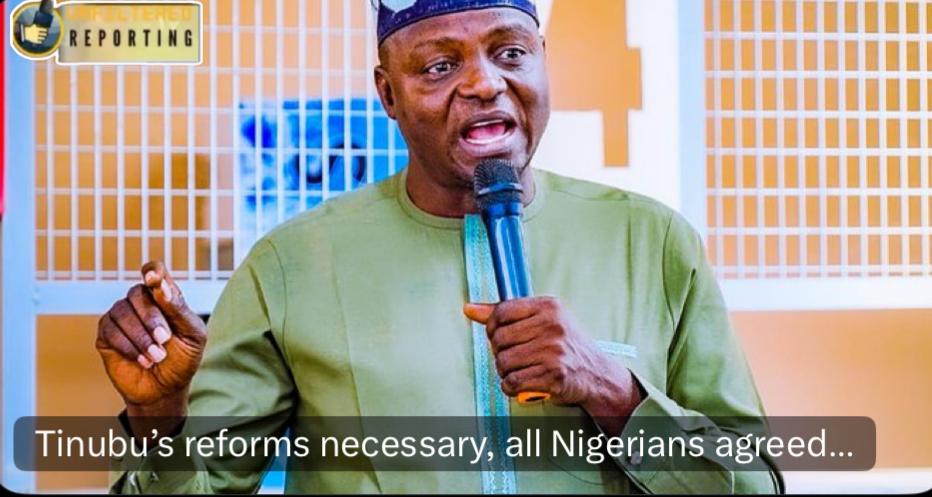Tinubu’s Reforms Necessary, Fuel Subsidy Removal Had Nigerians’ Consensus, Says Yilwatda

The National Chairman of the All Progressives Congress (APC), Professor Nentawe Yilwatda, has reaffirmed support for President Bola Ahmed Tinubu’s economic reforms, insisting that the removal of fuel subsidy was not only unavoidable but also widely accepted as a national consensus long before its implementation.
Addressing newsmen in Abuja, Yilwatda explained that successive governments had acknowledged the unsustainable nature of petrol subsidy but had failed to confront it. He maintained that President Tinubu acted decisively on inauguration day to end a policy that drained the economy of resources and offered little benefit to ordinary citizens.
“Every Nigerian already knew that subsidy removal was inevitable. It was never a question of if but when. President Tinubu showed courage by taking the step immediately because delaying it further would have plunged the economy into deeper crisis,” Yilwatda said.
The APC chairman pointed out that the impact of the reform is visible in the country’s revenue profile. He revealed that monthly allocations from the Federation Account, shared among federal, state, and local governments, have risen significantly since the policy took effect.
According to him, while previous allocations averaged around ₦500 billion, recent disbursements have reached as high as ₦2 trillion, giving governments at all levels more fiscal space to meet obligations.
He noted that many states which had previously relied on borrowing to pay workers’ salaries are now in a stronger financial position. “In 2023, more than 20 states struggled to pay salaries. Today, with the new revenue inflows, most of them are back on track. That shows clearly that the reforms are yielding results,” he stated.
President Tinubu’s announcement of subsidy removal in May 2023 immediately led to higher fuel prices and rising inflation, sparking backlash from organised labour, opposition parties, and civil society organisations who argued that the move deepened hardship for millions of Nigerians.
However, government officials have maintained that the policy was critical for redirecting resources into infrastructure, healthcare, education, and social programmes. Yilwatda acknowledged the economic pains but urged Nigerians to exercise patience, stressing that meaningful reforms often come with short-term discomfort before yielding long-term benefits. He also called for transparency and accountability in the management of savings realised from the subsidy withdrawal. “Reforms must be inclusive.
The government has to ensure that every naira saved is applied transparently and in ways that touch the lives of ordinary citizens. Otherwise, the policy will lose its moral weight,” he cautioned. The APC chairman’s remarks reflect the ruling party’s continued defence of Tinubu’s policies, which they argue are laying the foundation for economic stability.
Yet, critics maintain that without stronger safety nets, the reforms risk widening inequality and undermining public trust. As the debate persists, one fact remains clear: the subsidy removal has reshaped Nigeria’s fiscal landscape, leaving the nation at a crossroads where the success or failure of the reform will be judged by how well its benefits translate into tangible relief for citizens.








